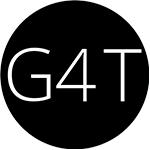The Rainforest Alliance
https://www.rainforest-alliance.org/
The Rainforest Alliance wass formed in 1987 as a 501c3 tax-exempt organization based in New York City.
The concept behind the organization is a belief that it is possible to create a sustainable global society.
The world’s natural resources are dwindling under the current market system that views all resources as a commodity without regard for the source, the environmental impact, nor the impact on the lives and livelihoods of all those involved in the supply chain. The Rainforest Alliance believes that the solution lies in transforming the current destructive market system into one that values sustainable production, sourcing, consumption and equitable trade.
To begin (as a baseline), they define sustainable business practices as requiring:
- Clean air and water
- Healthy biodiversity and wildlife habitat
- Reduction of wastes and levels of toxicity
- Reduction and mitigation of global warming
- Dignified and safe working conditions for workers and their families. This includes adequate food, education and healthcare.
- Equal opportunity for all
To accomplish this, they believe that a sustainable market system requires:
- Sustainable sourcing (of materials and resources), supply chain management and public accountability.
- All products are to carry prices that more accurately reflect their real environmental, economic and social value.
- Sustainable producers, including small and community-based businesses that have equitable market access.
- All people should be able to demand and have access to choices of high quality, sustainable and healthy products.
- Financial and insurance institutions need to support sustainable operations and penalize unsustainable operations.
- Governments must support sustainability through their procurement practices, incentives and regulations.
- Civil society supports and sources sustainability.
The basic premise is that the potential exists for a win-win situation: that it is possible to set up a system where everyone benefits. This may, in fact, be the only way to assure long-term compliance and benefits. The idea is to transform land-use practices, business practices and consumer behavior – all for the common good – in the short and long term.
The Rainforest Alliance is working in over 60 countries, collaborating with farmers, workers, business leaders, governments, scientists and local communities to creatively develop and implement standards that are socially and environmentally responsible as well as economically viable. As a partner with these groups and consumers, they are finding new systems and methods for crop and timber production and the way tourism is managed. In many cases, the Rainforest Alliance has become the cooperative voice between the farmers and workers and their governments, streamlining the implementation of new practices. The government’s benefit as well from pricing that better reflects the actual environmental and social impacts of the global markets for their natural and renewable resources.
To identify products that have met the standards set by the Rainforest Alliance (including the transparent process of rating these standards), the organization provides a seal of approval: “Rainforest Alliance Certified”, in the form of a graphic seal with a trademark including a tree frog. The seal of approval makes it easy for consumers to know that they are buying a product that has been built or grown sustainably. The companies selling these products are also representing to consumers that they are good neighbors in their communities and that they take care of their workers (all the way down the supply chain) and that they respect and protect the environment.
The Rainforest Alliance has a cooperative agreement with the Forest Stewardship Council (FSC). They use the standards set by the Forest Stewardship Council as standards for forestry management. FSC enterprises can also use the Rainforest Alliance Certified seal in conjunction with the FSC logo to help differentiate their products in the marketplace.
If you would like to use content from this page, see our Terms of Usage policy.
© 2010, Leonard Wyeth



